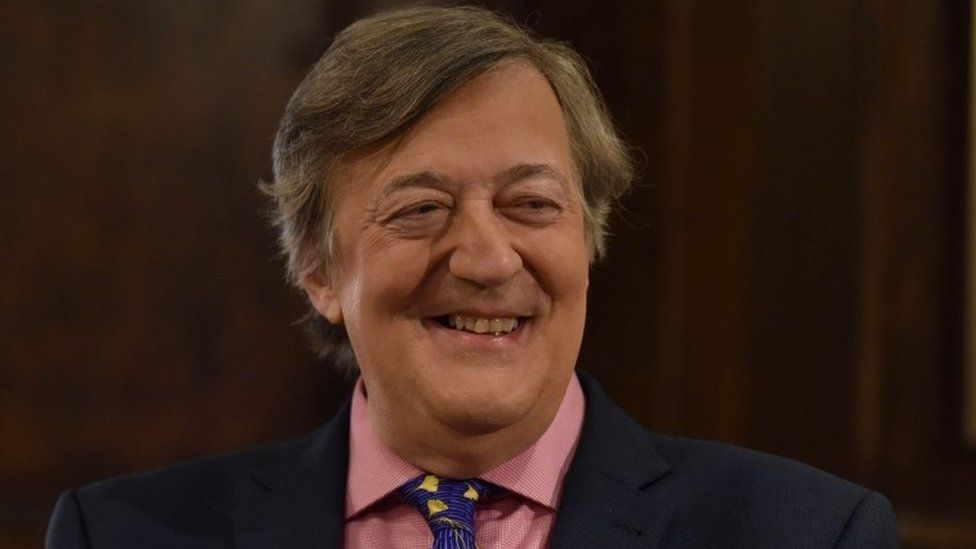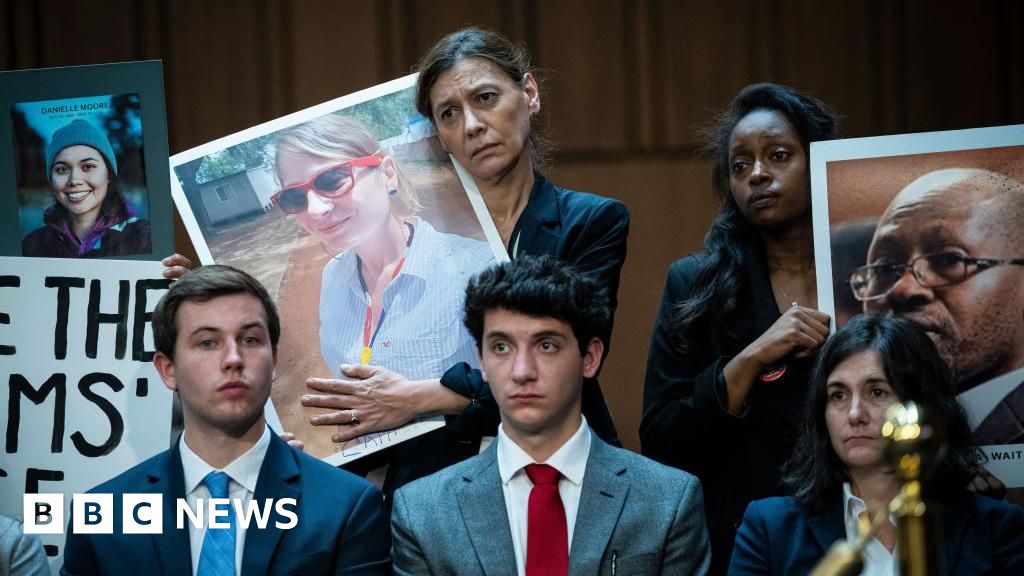ARTICLE AD BOX
 Image source, Jeff Overs / BBC
Image source, Jeff Overs / BBC
Stephen Fry and Emma Thompson are among celebrities calling on the five of the UK's biggest High Street banks to stop financing new oil, gas and coal projects.
It follows criticism that HSBC, Barclays, Santander, NatWest and Lloyds are funding "fossil fuel expansion" despite making green pledges.
Businesses and charities like Greenpeace also back the campaign.
HSBC and Barclays said they were helping their clients to cut emissions.
The campaign points to research by environmental charity Rainforest Action Network, which claims that between 2016 and 2021, HSBC, Barclays, Santander, NatWest and Lloyds funnelled almost $368bn (£298bn) towards the fossil fuel industry.
It added that in the same time period, the lenders financed the 50 companies making the biggest investments in oil and gas projects to the tune of $141bn.
It added that while HSBC and LLoyds had made "welcome new announcements" on stopping direct finance for new fossil fuel expansion since then, "there is a long way to go".
"HSBC was this month found to have provided $340m to a company opening a new coal mine in Germany," it said.
The campaign, which is also backed by actor Mark Rylance and musician Brian Eno, urges the public to sign an open letter asking the banks to stop directly financing projects that expand fossil fuel use, or end relationships with clients that do.
The campaign's founder, filmmaker Richard Curtis, said he wanted to put "a fire under the banks".
"It's clear that new oil and gas fields are not only hugely damaging to the planet, but they're also wildly unpopular with the public," he added.
Almost one third of HSBC, Barclays, Santander, NatWest and Lloyds' customers surveyed by the campaign said that they would switch bank if they discovered that theirs was financing the expansion of fossil fuel projects.
Over 85% of customers at the five banks surveyed said they did not think that their bank was doing enough to tackle the climate crisis.
TV presenter Chris Packham CBE said that financial institutions had an "enormous ethical and moral responsibility" to start withdrawing funding from organisations that damaged the climate and biodiversity.
'Significant impact'
Last month, HSBC announced it would stop financing new oil and gas fields as part of its efforts to drive down global greenhouse gas emissions.
In a statement to the BBC, it said it no longer provides new finance or advisory for new oil and gas fields or related infrastructure, or for "the most carbon-intensive oil assets".
"Supporting clients in high-emitting sectors to decarbonise will have the most significant impact on emissions reduction in the real economy and accelerate an orderly transition to net zero," it added.
A spokeswoman from Barclays said that many oil and gas companies are "actively engaged and critical to the transition, committing significant resources and expertise" to renewable energy.
"We believe that we can make the greatest difference by supporting these clients to transition to a low-carbon economy, facilitating the finance needed to change their business practices and scale green technologies."
Since January 2019, the bank has not provided loans for the development or expansion of coal-fired power stations or greenfield thermal coal mines.
The spokesman added that Barclays would reduce its support for carbon-intensive companies over time if they were "unable or unwilling to reduce or eliminate their emissions".
Britain's biggest domestic bank, Lloyds, made a similar announcement to stop "direct" financing to develop new oil and gas fields in October. The BBC has contacted the bank, along with Santander and NatWest for comment.
Under the 2015 Paris Agreement, 197 countries agreed to try to keep temperature rises "well below" 1.5C to avoid the worst impacts of climate change.
Experts say that to achieve this, countries must have net zero emissions by 2050.

 2 years ago
52
2 years ago
52








 English (US) ·
English (US) ·